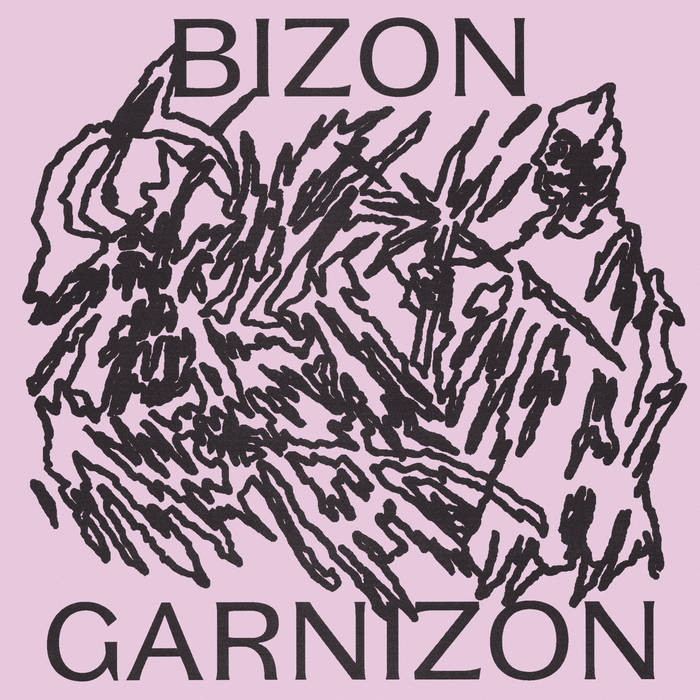Released quietly in 2020, but with undeniable force, Hainin is the sophomore album by Croatian five-piece Daliborovo Granje – and it feels like a discovery. Word has spread beyond their hometown of Čakovec, but a copy of the record itself remains hard to find, and it’s not hard to see why it’s gained a cult following. This is a record you stumble upon, obsess over, and then try to explain to your friends like a secret you half don’t want to share.
Entirely instrumental, the album is already enigmatic before you hear a note. The cover – a weathered black-and-white photo of a man with torn clothes and wild hair – raises more questions than answers. I later read (via their interview with Psychedelic Baby Magazine) it’s a mugshot from Austria-Hungary, early 1900s. No name, no crime, just an image. There’s a halo-like circle drawn around his head, but whether that’s intentional or coincidental is anyone’s guess. Even the title, Hainin, remains a mystery to me. Maybe someone out there can help me out?
Musically, Hainin sits in its own universe. It’s psychedelic rock, yes — but not in the vein of UK freakouts or West Coast haze. This is something else. Rooted in improvisation and long form jams, it blends elements of space rock, stoner rock, and Balkan folk into a dense, often unpredictable sound. It’s Međimurje psych rock, if such a thing exists.
The opener, Mehana (a word that I’ve grasped as meaning “tavern”), sets the tone. It’s heavy, swirling, and expansive – constantly shifting but never aimless. Fuzzy guitars crash in and out, drums lock into deep grooves, and then, unexpectedly, a trumpet appears like a ghost through the fog. That stretch midway through, when the heaviness dissolves into something misty and melodic, is one of the album’s best moments.
Ak-maknadi keeps things tense and exploratory. The drumming here deserves special mention – cymbals shimmer like dust in the light, while everything around them distorts and pulses. It’s psychedelic, but not trippy in the usual sense – more like controlled chaos, channelled through instinct.
The title track, Hainin, feels like the band at full tilt. Each instrument seems to pull in its own direction, but somehow it holds together. The bass snarls, the guitar spirals, the drums chase and catch and push again. It’s moments like this that show just how tight they are – improvisational, yes, but never sloppy.
Izgubljena brings a more intricate opening, with a space-rock solo that flares out halfway through. There’s a kind of repetition here, but it works – each cycle tweaks the formula slightly, upping the fuzz or tightening the tension. Then there’s Žal, which leans into something more melodic and wistful, almost folky. It’s a subtle shift, but it gives the album breathing room before the heavier moments return.
Sjenka u Mehani (“Shadow in the Tavern”?) feels almost narrative. There’s a sense of curiosity in the way the guitar lines move – not quite ominous, but uncertain. Is the shadow the man on the cover? Someone else? Or just a flicker of imagination? The music doesn’t answer, and that’s part of the appeal.
Na putu za Stakleni Grad is the odd one out. Slightly awkward, a little off-kilter – it doesn’t land quite like the others. But maybe that’s intentional. A detour before the final stretch. Kača drags us back into heavier territory – sludgy, riff-driven, and with a strong stoner-rock edge. Think Kyuss or early Queens of the Stone Age, but through a Balkan lens. It hits hard.
The closer, Haloperidol, is a slow burn — tense, deliberate, and sprawling. I’m a sucker for this kind of album-ending track. It conjures vast spaces, either the Nevada desert or some imagined Balkan wilderness. The final minutes deliver some of the most unhinged, ecstatic guitar work on the album. It leaves you wanting more – or maybe just wishing it would loop back to the start.
Hainin is a rare thing: a heavy psych record that doesn’t feel stuck in genre. It has its own logic, its own mood. You can trace its influences, sure, but it always pulls toward something more local, more specific. It’s not trying to sound like anything else – and in that, it finds its power.
It’s a trip I’ll be returning to, especially when I want something that’s textured, immersive, and a tad bit mysterious.
Where to Find Them
- Instagram: @daliborovo.granje
- Bandcamp: listen & support on Bandcamp


